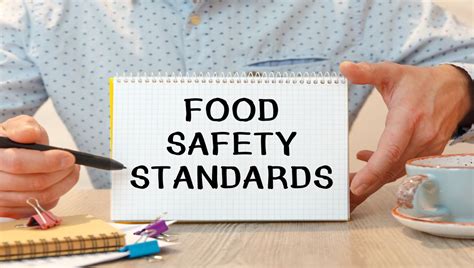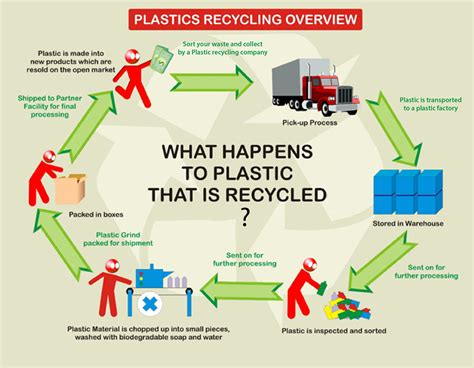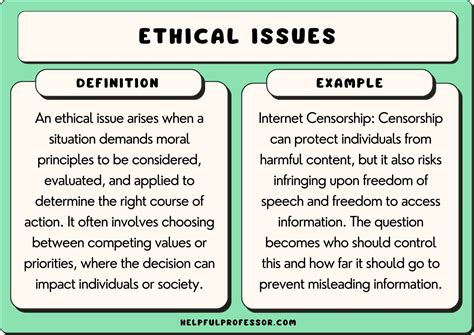In today's fast-paced world, smartphones have become an indispensable part of our lives. With their advanced features and sleek designs, these devices offer us seamless connectivity and enhance our productivity. However, it is crucial to ensure that the smartphone we choose is safe for us, our loved ones, and the environment. One essential aspect to consider is the smartphone's compliance with the Restriction of Hazardous Substances (RoHS) directive.
RoHS certification guarantees that the electronic device is manufactured without the use of hazardous materials such as lead, mercury, cadmium, and other harmful substances. It ensures that the product is environmentally friendly and safe for human use. While various smartphones on the market claim to offer the same level of performance, not all of them possess the RoHS certification, which serves as a mark of quality and sustainability.
It is important to be aware of the potential risks associated with purchasing an unauthorized iPhone without RoHS certification. Without this certification, these devices could contain harmful elements that pose significant health hazards. Prolonged exposure to these hazardous substances can have detrimental effects on our well-being, including negative impacts on our reproductive system, nervous system, and overall immunity.
Environmental Impact

The environmental impact of a product is an important consideration when making purchasing decisions. When looking to buy a device such as a smartphone, it is crucial to assess its environmental implications. By doing so, consumers can contribute to sustainable practices and minimize the negative effects on the environment.
One significant aspect to consider is the product's adherence to RoHS certification. RoHS, which stands for Restriction of Hazardous Substances, is a directive set by the European Union to limit the use of certain hazardous materials in electronic devices. Choosing a smartphone without RoHS certification can have detrimental effects on the environment.
Smartphones without RoHS certification may contain harmful substances such as lead, mercury, cadmium, chromium, and polybrominated biphenyls (PBDEs). These substances are known to be toxic and can be hazardous to human health and the environment. When improperly disposed of, they can leach into the soil and water, contaminating the ecosystem and posing risks to wildlife and vegetation.
Furthermore, the production and disposal of smartphones without RoHS certification contribute to increased electronic waste (e-waste). E-waste is a growing concern globally, as it poses significant challenges in terms of recycling and proper disposal. Inadequate management of e-waste leads to pollution, resource depletion, and the release of harmful chemicals, further exacerbating the negative environmental impact.
By choosing a smartphone with RoHS certification, consumers can ensure that the device is manufactured without hazardous substances and conforms to environmentally-friendly production practices. This certification indicates that the product has undergone stringent testing and complies with the RoHS requirements, thus minimizing the environmental burden.
In conclusion, considering the environmental impact of a smartphone is crucial when making purchasing decisions. Opting for devices with RoHS certification ensures that they are manufactured without hazardous substances and supports sustainable practices, leading to a reduced negative impact on the environment and a healthier future for all.
Potential health risks
When considering the choice of a mobile phone, it is essential to be aware of potential health risks associated with certain devices. Ensuring that the device you are purchasing meets specific safety requirements and certifications is crucial to safeguarding your well-being.
One of the factors to consider is the presence of hazardous substances in the electronic components of the phone. These substances can have adverse effects on human health and the environment and are regulated by certifications such as the RoHS (Restriction of Hazardous Substances) certification.
Without proper RoHS certification, there is a possibility that the iPhone may contain harmful substances such as lead, mercury, cadmium, and brominated flame retardants. These substances can pose health risks, especially if prolonged exposure occurs. Exposure to hazardous materials can lead to various health problems, including respiratory issues, damage to the nervous system, and even the development of certain types of cancer.
Furthermore, the absence of RoHS certification raises concerns about the manufacturing processes and quality control of the iPhone. Without proper oversight and compliance, the risk of using substandard materials or employing unsafe manufacturing methods increases, which could further contribute to potential health risks.
When comparing different mobile phone options, it is crucial to prioritize your health and choose devices that adhere to internationally recognized safety standards. By selecting an iPhone with RoHS certification, you can have peace of mind knowing that the device meets stringent regulations and that the risk of exposure to harmful substances is minimized.
- Exposure to hazardous substances
- Possible health implications
- Lack of oversight and compliance
- Safeguarding well-being
- Adherence to safety standards
Lack of Safety Standards

When considering the purchase of a smartphone, it is crucial to evaluate the safety standards that the device upholds. Safety standards play a significant role in protecting consumers from potential health hazards and ensuring the overall well-being of individuals using the product. In the case of iPhones without RoHS certification, there is a notable absence of safety standards, which can pose a range of risks to both the user and the environment.
One of the primary concerns associated with iPhones lacking RoHS certification is the potential for harmful chemicals to be present in the device. Without proper certification, there is no guarantee that the phone has been manufactured without the use of hazardous substances. These substances, such as lead, mercury, cadmium, and various flame retardants, can have detrimental effects on human health, causing issues like respiratory problems, reproductive disorders, and even cancer.
- Another aspect related to the lack of safety standards is the absence of proper disposal guidelines. iPhones without RoHS certification may not adhere to environmentally-friendly disposal practices. This means that when these devices reach the end of their life cycle, they may end up in landfills, leading to the release of hazardous materials into the soil and groundwater, contributing to pollution and posing risks to ecosystems.
- Furthermore, the absence of safety standards can also result in poor product quality and reliability. Without thorough testing and compliance with certification requirements, there is a higher chance of encountering issues like overheating, battery explosions, or other malfunctions that can jeopardize the safety of the user.
- Additionally, without RoHS certification, it can be challenging to accurately determine the origin and authenticity of the iPhone. This lack of transparency increases the risk of purchasing counterfeit or refurbished devices, which may not meet quality standards and could potentially be unsafe to use.
In conclusion, the lack of safety standards associated with iPhones without RoHS certification raises significant concerns regarding the potential presence of harmful chemicals, the absence of proper disposal guidelines, compromised product quality, and difficulties in determining device authenticity. Consideration of these factors is crucial when making an informed decision about purchasing a smartphone to ensure the safety and well-being of yourself and the environment.
Non-Compliance with International Regulations
When considering the purchase of an electronic device, it is important to take into account its compliance with international regulations. This aspect ensures that the product adheres to the standards and guidelines established by global organizations, contributing to the protection of the environment and human health.
However, some devices may not meet these regulatory requirements, potentially posing risks to both the consumer and the environment. Non-compliance with international regulations can lead to the use of hazardous substances in the manufacturing and disposal processes of the product, resulting in harmful consequences.
Without proper adherence to international regulations such as the Restriction of Hazardous Substances Directive (RoHS), electronic devices can contain high levels of substances like lead, mercury, cadmium, and brominated flame retardants. Exposure to these substances can have detrimental effects on human health, ranging from respiratory and neurological disorders to organ damage and even certain types of cancer.
Moreover, non-compliant devices contribute to pollution and environmental degradation. Improper handling and disposal of such devices can contaminate soil and water sources, affecting ecosystems and biodiversity. The presence of hazardous substances in electronic waste poses a significant threat to the environment, causing long-term damage and impacting future generations.
By purchasing electronic devices that adhere to international regulations, consumers can make a positive impact by supporting environmentally friendly practices and ensuring their own safety. Choosing products that have obtained RoHS certification or similar certifications is a responsible choice that promotes sustainable development and protects both human health and the planet.
Impact of Limited Product Recyclability

One crucial aspect to consider when purchasing electronic devices is their recyclability and the impact they have on the environment. Limited product recyclability can lead to various negative consequences, including increased electronic waste and resource depletion. It is essential to understand the significance of this factor in order to make informed decisions regarding the purchase of electronic devices.
1. Environmental Consequences: Electronic devices that have limited product recyclability contribute significantly to the growing electronic waste problem. When these devices reach the end of their life cycle, they often end up in landfills or are improperly disposed of, releasing harmful substances into the environment. This not only poses a risk to human health but also damages ecosystems and contributes to pollution.
2. Resource Depletion: Limited product recyclability means that valuable resources used in electronic devices, such as metals and rare earth elements, are not being efficiently recovered and reused. These resources are finite and extracting them has detrimental effects on the environment, including deforestation, habitat destruction, and increased greenhouse gas emissions. By choosing devices with better recyclability, we can help reduce the demand for new resources and minimize the environmental impact.
3. Sustainable Production: Devices with RoHS certification demonstrate a commitment to sustainable production practices. The RoHS directive restricts the use of hazardous substances in electronic devices, making them safer for both the environment and human health. By purchasing electronic devices with RoHS certification, we support manufacturers who prioritize the use of environmentally friendly materials and processes, thereby fostering a more sustainable and responsible electronics industry.
4. Opportunity for Innovation: The push towards better product recyclability presents an opportunity for technological innovation. By investing in research and development of more recyclable materials and design approaches, manufacturers can create electronic devices that are not only environmentally friendly but also meet the demands of consumers. Supporting this innovation not only benefits the environment but also contributes to a more circular and sustainable economy.
- Conclusion
Considering limited product recyclability is crucial when making purchasing decisions regarding electronic devices. By choosing devices that are more easily recyclable, we can help reduce electronic waste and minimize the environmental impact of our consumption. Additionally, supporting manufacturers who prioritize sustainable production practices encourages innovation and contributes to the development of a more responsible and sustainable electronics industry.
Hazardous Substances in iPhone Components
One of the crucial aspects to consider when evaluating the purchase of an electronic device is the potential presence of hazardous substances in its components. This section explores the potential risks associated with certain substances found in iPhone components, shedding light on the importance of seeking products with appropriate certifications.
- Lead: Found primarily in soldering and battery components, lead is a highly toxic substance that poses substantial health risks, especially when exposed to children and pregnant women. Exposure to lead can lead to developmental delays, neurological damage, and impaired cognitive function.
- Mercury: Often present in the display screens of electronic devices, mercury is another hazardous substance with severe environmental implications. It can contaminate water sources and cause significant harm to ecosystems, wildlife, and humans who consume contaminated food or water.
- Cadmium: While cadmium is less common in iPhone components, it is still worth highlighting its potential dangers. This heavy metal is known to cause damage to the kidneys, lungs, and liver, and continuous exposure can lead to various long-term health issues.
- Brominated Flame Retardants (BFRs): BFRs are commonly used in electronic devices to reduce the risk of fire. However, certain BFRs are known to be persistent organic pollutants that can accumulate in the environment and human bodies, potentially causing adverse health effects.
- Phthalates: These chemical compounds are used in plastic components of electronic devices to improve flexibility. However, certain phthalates have been found to disrupt the endocrine system and may be linked to developmental issues, reproductive problems, and certain types of cancers.
Understanding the presence and potential dangers of these hazardous substances highlights the importance of seeking RoHS-certified iPhone models. The Restriction of Hazardous Substances (RoHS) certification ensures that electronic devices meet specific criteria and contain minimal levels of hazardous substances, protecting both the environment and consumers from potential harm.
Negative Impact on Ecosystems

One of the significant concerns when considering electronic devices lacking RoHS certification is the potential negative effects they can have on ecosystems. These effects are the result of various factors, including the use of hazardous substances and the inadequate disposal of electronic waste. Such consequences can manifest in different ways and can have far-reaching implications for the environment and the delicate balance of ecosystems.
One of the key concerns is the improper disposal of electronic waste, including non-certified iPhones, which contain hazardous materials such as lead, mercury, and cadmium. When these devices end up in landfills or are incinerated, these substances can be released into the environment, contaminating soil, water sources, and the air we breathe. This pollution has devastating effects on plant and animal life, disrupting their natural habitats and causing adverse health effects.
In addition to the direct impact on ecosystems through pollution, uncertified iPhones also contribute to the depletion of finite natural resources. The production of electronic devices involves the extraction and processing of raw materials, including rare earth metals. Non-certified iPhones often lack efficient recycling programs, leading to a significant loss of valuable resources that could otherwise be reclaimed and reused in future manufacturing processes. This unsustainable resource consumption contributes to environmental degradation and further exacerbates the negative impact on ecosystems.
Furthermore, uncertified iPhones may also contribute to environmental damage through the energy inefficiency of their manufacturing processes and subsequent usage. Inefficient production methods and the lack of regulatory oversight can result in excessive energy consumption and carbon emissions. The continued use of these devices without proper certification perpetuates the cycle of environmental harm, exacerbating climate change and its detrimental effects on ecosystems.
In conclusion, the decision to avoid purchasing an iPhone without RoHS certification is crucial to minimize negative consequences on ecosystems. These include the improper disposal of electronic waste, pollution from hazardous substances, the depletion of natural resources, and the exacerbation of climate change. By focusing on certified products and supporting environmentally responsible practices, individuals can actively contribute to the preservation and health of ecosystems and promote a sustainable future.
Restricted Market Access
In the realm of consumer electronics, certain standards and regulations are essential to ensure the safety and environmental sustainability of products. Without adherence to these requirements, manufacturers face restricted market access, limiting their ability to sell their products in specific regions or to specific customers.
Environmental Compliance: One significant aspect of restricted market access concerns compliance with environmental regulations. Governments around the world have implemented various environmentally friendly initiatives, such as the Restriction of Hazardous Substances (RoHS) directive. This directive restricts the use of hazardous substances, including lead and mercury, in the production of electronic devices. By obtaining RoHS certification, manufacturers demonstrate their commitment to environmental sustainability and gain access to markets where compliance with these regulations is mandatory.
Health and Safety Regulations: Another important aspect relates to health and safety regulations. Governments and regulatory bodies enforce strict guidelines to protect consumers from potentially harmful products. These regulations require manufacturers to ensure that their products do not pose any risks to users. Failure to comply with these regulations can result in legal consequences and barred access to specific markets or customers.
Trade Agreements and International Standards: Additionally, restricted market access can be a consequence of trade agreements and international standards. Countries enter into agreements that define the criteria for importing and exporting goods, including electronics. Compliance with these agreements and standards is crucial for manufacturers seeking to expand their reach in global markets. Non-compliance may lead to complications in accessing certain markets or hinder business growth.
Consumer Preferences and Perception: Furthermore, restricted market access can be driven by consumer preferences and their perception of a product's compliance with regulations. Consumers are becoming increasingly conscious of the environmental and ethical aspects of the products they purchase. Therefore, manufacturers without the required certifications may face difficulty gaining consumer trust, leading to limited market access and decreased demand for their products.
Overall, restricted market access due to non-compliance with essential regulations can significantly impact a manufacturer's ability to sell their products. Failure to meet environmental, health, and safety standards, as well as comply with trade agreements and consumer preferences, can result in missed opportunities and hindered growth in the competitive consumer electronics industry.
Ethical Concerns

When considering the purchase of a smartphone, it is important to take into account the ethical implications of the product and its manufacturing process. This section aims to shed light on the ethical concerns that may arise when buying a device that lacks the RoHS certification.
- Hazardous Substances: One of the primary reasons to be cautious when purchasing a smartphone without RoHS certification is the potential presence of hazardous substances. The RoHS certification ensures that the device does not contain lead, mercury, cadmium, hexavalent chromium, polybrominated biphenyls, or polybrominated diphenyl ethers. These substances can have detrimental impacts on both human health and the environment, making their exclusion an important ethical consideration.
- Worker Safety: Ethical concerns extend beyond the materials used in the device to the conditions in which it is produced. Without RoHS certification, there is a higher risk of the device being manufactured in facilities with poor working conditions. This may include exploitative labor practices, unsafe working environments, or inadequate protection measures for workers. By purchasing a smartphone without RoHS certification, one indirectly supports such conditions, compromising the ethical aspects of the purchase.
- E-Waste Management: The proper disposal and recycling of electronic waste, commonly known as e-waste, is another ethical concern associated with buying a smartphone without RoHS certification. RoHS-certified devices have undergone strict regulations to minimize the use of hazardous materials, making them easier to recycle and dispose of responsibly. Without this certification, the device may contribute to the growing e-waste problem, as it may contain toxic substances that are harmful when improperly discarded.
- Sustainability: Considering the environmental impact of a product is an essential aspect of ethical decision-making. Smartphones without RoHS certification may be more detrimental to the environment due to their use of hazardous materials and lack of sustainability measures. By supporting the production and purchase of such devices, consumers inadvertently contribute to resource depletion and ecological damage, undermining the principles of responsible consumerism.
- Transparency and Accountability: The RoHS certification process promotes transparency and accountability in the electronics industry. It ensures that the device manufacturer meets the necessary requirements and follows the prescribed regulations regarding hazardous substances. Buying a smartphone without this certification raises concerns about the manufacturer's commitment to ethical practices. Lack of transparency and accountability may indicate potential unethical practices in other aspects of the manufacturing process.
In conclusion, making an ethical decision when purchasing a smartphone involves considering the potential implications on human health, worker safety, the environment, and overall sustainability. By understanding the ethical concerns associated with devices lacking RoHS certification, consumers can make more informed choices that align with their values and contribute to a more responsible and sustainable future.
FAQ
What is RoHS certification and why is it important?
RoHS certification stands for Restriction of Hazardous Substances Directive. It restricts the use of certain hazardous substances in electrical and electronic equipment. It is important because it ensures that the product is free from harmful materials and is safe for both the environment and human health.
Why should I avoid buying an iPhone without RoHS certification?
Buying an iPhone without RoHS certification means that the device may contain hazardous materials such as lead, mercury, cadmium, and other harmful substances. These materials can have serious health impacts and cause environmental pollution when improperly disposed of. Therefore, it is recommended to avoid such devices to protect your health and the environment.
Can using an iPhone without RoHS certification harm my health?
Yes, using an iPhone without RoHS certification can potentially harm your health. The uncertified device may contain hazardous substances like lead, which is known to cause serious health issues such as developmental problems, neurological disorders, and reproductive toxicity. Therefore, it is important to opt for a certified iPhone to ensure the safety of your health.
What should I do if I already own an iPhone without RoHS certification?
If you already own an iPhone without RoHS certification, it is recommended to stop using it and consider replacing it with a certified device. You can recycle your old iPhone at an authorized recycling center to ensure its proper disposal and minimal environmental impact. It is better to prioritize your health and the environment by using certified electronic devices.




